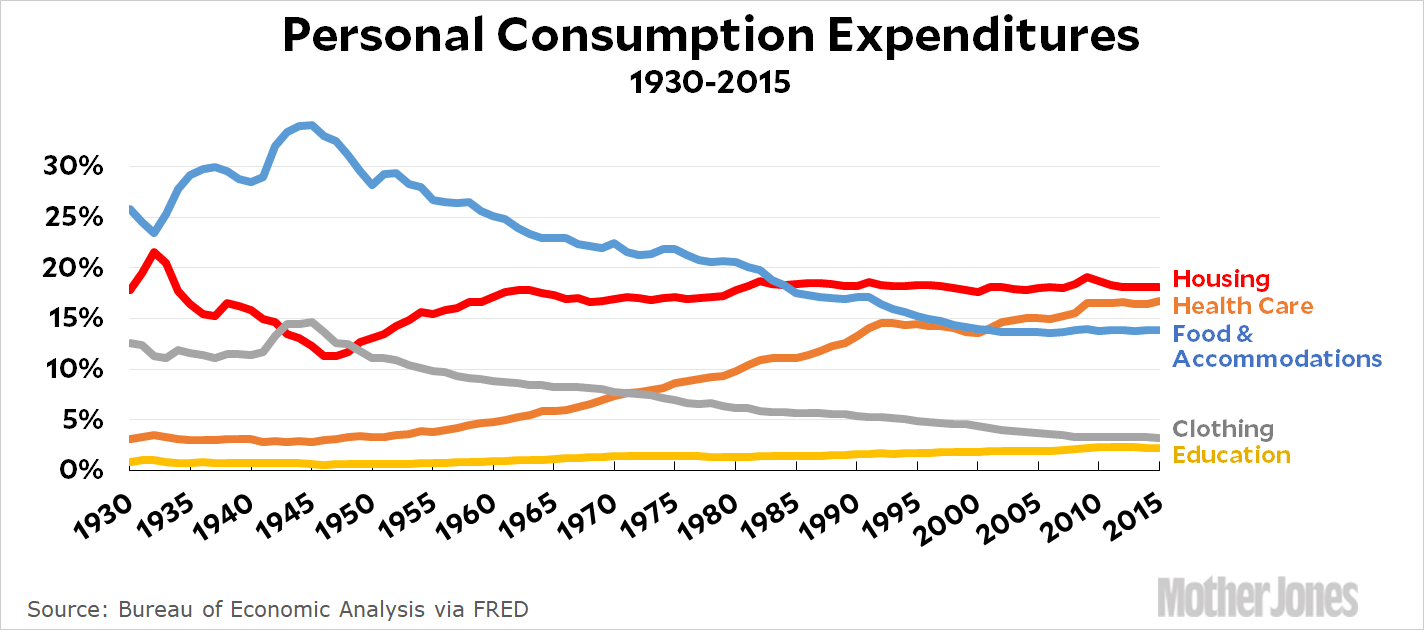Austin Frakt posted an old New York Times chart of personal expenditures, and a reader has a question:
Tweeps? https://t.co/lXMdkokchj
— Austin Frakt (@afrakt) July 31, 2017
The answer, as it is so often, is FRED, the economic data aggregator from the St. Louis Fed. Here it is:

When I use data from FRED, I always include it as a source. Why? Because it’s a great service, and deserves to get more credit. They don’t cover literally everything—for some reason, the Census Bureau doesn’t share its data, for example—but they cover a helluva lot. And once you learn how to use it, you have fast, convenient access to data from dozens of agencies. I probably could have dug up this chart over at the BEA, but it would have taken me a while. FRED made it the work of a few minutes.

















